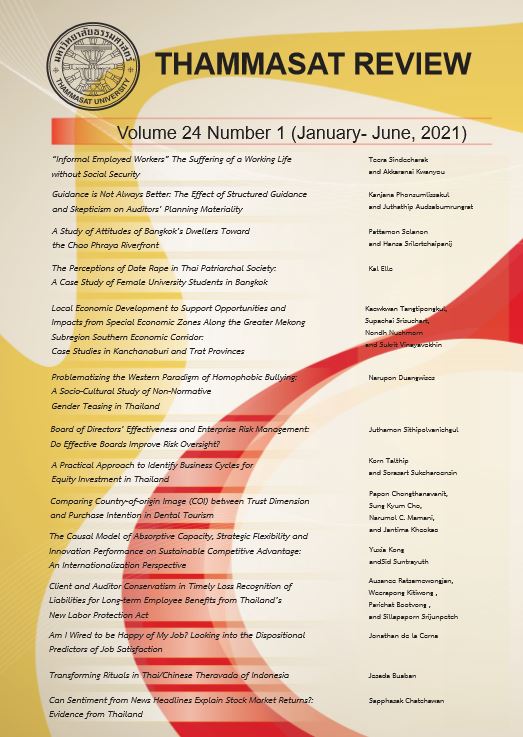Client and Auditor Conservatism in Timely Loss Recognition of Liabilities for Long-term Employee Benefits from Thailand’s New Labor Protection Act
Keywords:
Client conservatism, Auditor conservatism, Timely loss recognition, Employee benefitsAbstract
The December 2018 amendment of the Labor Protection Act in Thailand caused different accounting practices for reporting the effect of the amendment among listed companies in the country. Some of them recognized the effect in 2018 while some of them delayed the recognition to 2019. Their different accounting practices call for an investigation into the role of accounting conservatism in Thailand. By using data of 580 listed companies, we found that clients were more likely to opt to delay the recognition and only disclosed the effect in 2018 when there was the official guideline that allowed them to opt to recognize or delay recognizing the effect of the amendment to the later year. With Thailand’s unique culture, clients behave more accounting conservative by recognizing/disclosing the greater estimated amounts of the effect of the amendment in 2018 whilst the auditors might at least challenge their clients to disclose the effect in 2018. However, there was doubt as to whether auditor conservatism was undermined by Thailand’s Krengjai norm and smooth interpersonal relationship orientation. We then suggest that a clear guideline for the different accounting practices is necessary to reduce the divergence of accounting practices as well as promoting accounting conservatism.
Downloads
Published
How to Cite
Issue
Section
License
The opinions and ideas expressed in all submissions published in Thammasat Review are solely that of the author(s) and do not necessarily reflect that of the editors or the editorial board.
The copyright of all articles including all written content and illustrations belong to Thammasat Review. Any individuals or organisation wishing to publish, reproduce and distribute a particular manuscript must seek permission from the journal first.








